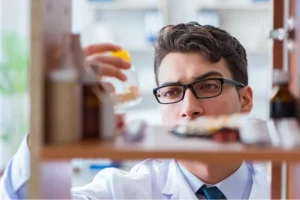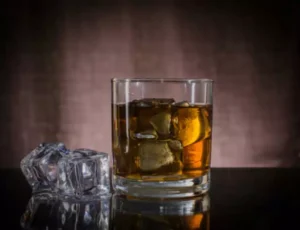
Many who embark on addiction recovery see it in black-and-white, all-or-nothing terms. They see setbacks as failures because the accompanying disappointment sets off cascades of negative thinking and feeling, on top of the guilt and shame that most already feel about having succumbed to addiction. During emotional relapse, people aren’t considering drinking or using.

How to stay free of alcohol or drugs
- Sometimes nothing was going on—boredom can be a significant trigger of relapse.
- Friends and family see the noticeable benefits of quitting alcohol when their loved one stops drinking and chooses to pursue a healthy life.
- Some models of addiction highlight the causative role of early life trauma and emotional pain from it.
- In a health condition, they involve the return of disease symptoms.
- If you start to think of yourself as a failure, you’re more likely to move into the next stage of relapse.
Things like…make an immediate appointment with your therapist. Talk to a trusted, nonjudgmental friend, sponsor, or mentor. And get out of your negative headspace in healthy ways.
Step Up Level of Treatment
Some people who slip realize their mistake and seek help. It’s sometimes the last obstacle to overcome on the path to alcohol recovery. They either relapse or seek further therapy to prevent future slips.

Life After Relapse — How to Bounce Back and Start Over

Most i relapsed again people in recovery from addiction are always vulnerable to relapse. I don’t know… but I have a pretty good idea of where to start. You may have let yourself indulge in old habits, but that doesn’t make you any less of a person or means you deserve it.
Seek help from your clinicians or support network; don’t be afraid to tell them you’ve relapsed
However, people who slip and don’t seek help often experience a physical relapse. They begin using obsessively or compulsively, and they start to experience negative consequences from that use. Being able to just simply sit with my feelings of worthlessness or shame while resisting the urge to self-harm is the thing I am most proud of. There is no one-size-fits-all approach when it comes to recovery. Each person Sober living house has to understand what that means for them.
About 40% to 60% of people who get treatment for substance use disorder have https://ecosoberhouse.com/ a relapse. That’s about the same as relapse rates among people with asthma or high blood pressure if they stop taking their medicine. What’s key is to recognize the early signs of relapse, so you can stop a backslide before it starts. With CBT, you learn that recovery is based on practicing coping skills, not willpower.
- One of the problems with my alcohol use was that I drank with others because I didn’t want to be alone.
- Once you figure out your own triggers, think about something you can do instead of substance use for each one.
- Being able to fall down after you’ve climbed so high, scrape off the dirt, bandage up the cuts and bruises and, begin climbing again — that’s true strength.
- But sometimes triggers can’t be avoided—you accidentally encounter someone or pass a place where you once used.
Can You Prevent a Relapse?
- To stop a relapse, or to keep it from getting worse, you’ll likely need treatment from a health professional.
- After a relapse, getting back on track as soon as possible is important.
- Recognize that cravings are inevitable and do not mean that a person is doing something wrong.
- He shared that even with his sobriety firmly under his belt, his mind still wondered that maybe, just maybe this time he could drink like normal people.
- I had to hit rock bottom before I could find freedom from my addictions.
It will help them understand more about your situation, so they can work with you to make lapses or relapses less likely in future. If you’re already seeing a treatment service, then telling your recovery worker about your lapse helps them support you better. Sometimes it takes a while, and it’s rarely a straight line.
How to Prevent a Relapse
Reflect on the circumstances or feelings that preceded the relapse. This awareness can help in developing strategies to cope with these triggers in the future. It’s also helpful to discuss these triggers with a therapist or support group to gain further insights and coping mechanisms. Relapse can occur at any stage of the recovery process.

If you’re already in treatment
People who maintain sobriety for several weeks or months become much less tolerant than they were in the past. If they relapse and use the same dose that they used during active addiction, their risk of overdose is high. One of the most dangerous aspects of relapse is the increased risk of overdose. When people use alcohol or other drugs for a long period of time, they develop tolerance.
Through psychotherapy, you can also learn how to manage your own thoughts and actions so that you feel less depressed. A depression relapse or recurrence can be treated in various ways, sometimes through a combination of therapies. For example, your doctor may recommend both antidepressant treatment and psychotherapy. One way of ensuring recovery from addiction is to remember the acronym DEADS, shorthand for an array of skills to deploy when faced with a difficult situation—delay, escape, avoid, distract, and substitute. The more ACEs children have, the greater the possibility of poor school performance, unemployment, and high-risk health behaviors including smoking and drug use.


Cevapla
Want to join the discussion?Feel free to contribute!